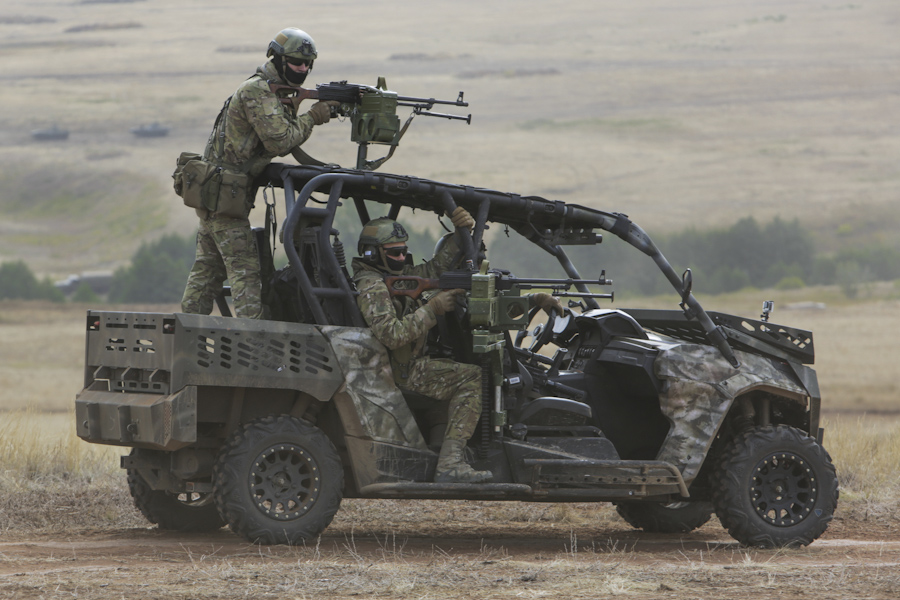Russian military police have been deployed to an area east of Syria’s capital Damascus as part of their contribution to so-called “de-escalation” zones in the country.
According to Russian military officials, the military police there are to function as peacekeepers, enforcing a cease-fire agreement hashed out between Russia, Iran, the Assad regime, Turkey, and opposition groups.
The cease-fire area, in the Ghouta district east of Damascus, is one of four de-escalation zones that were proposed as part of talks between regional powers in Kazakhstan in May. Wary of participating in any Iranian-sponsored initiatives, the United States steered clear of the Russian-led efforts on the de-escalation zones.
The Russians deployed two checkpoints and four observations posts as part of their peacekeeping presence last weekend, and two more checkpoints and 10 observations posts elsewhere in southwest Syria, Reuters reports.
“Thus, thanks to measures taken by the Russian Federation, we have managed to stop military action in two of Syria’s most important areas,” the defense ministry said.
The area being patrolled by these Russian military police is separate from the cease-fire in southwest Syria that was negotiated between President Donald Trump and Vladimir Putin. Specific details on that agreement have been limited, but the deal, negotiated between the United States, Jordan, Russia, and reportedly with ‘consulting’ from Israel, has effected a tenuous ceasefire that has more or less held for over two weeks.
Israel’s consultation in the Trump-Putin agreement is over their concern of Iranian proxies operating in the border region between Israel and Syria.
While a cessation of hostilities is objectively a good thing, any immediate celebrations must be tempered with the fact that the United States and Russia have agreed to coordinating ‘cease-fires’ in Syria before, which never held more than a few weeks. Time will tell if Trump’s first major diplomatic achievement with Russia can be maintained, while a power vacuum grows in Syria’s east with the slow erosion of territory held by the Islamic State.
Image of Russian military police from Russian Ministry of Defense
Already have an account? Sign In
Two ways to continue to read this article.
Subscribe
$1.99
every 4 weeks
- Unlimited access to all articles
- Support independent journalism
- Ad-free reading experience
Subscribe Now
Recurring Monthly. Cancel Anytime.











COMMENTS